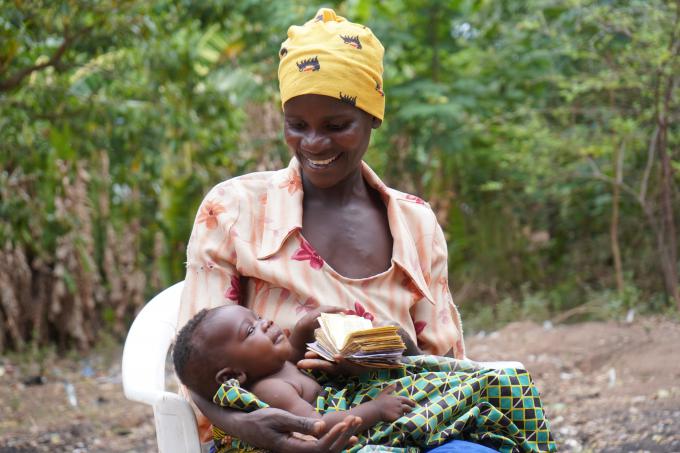Rebuilding Dreams Amid Harsh Food Insecurity Realities
In Zomba district, Elise's story stands as proof to the challenges faced by many amidst the country's worst food insecurity crisis in half a decade. With Cyclone Freddy's devastating impact, Elise, much like numerous families, saw her livelihood overturned. A resilient farmer and wife to a fisher, her family bore the brunt of nature's fury, experiencing crop loss and a dramatic decline in fish availability due to the cyclone's aftermath.
"Sometimes we've been going for two days without a meal," Elise shares, reflecting the harsh reality faced by her family.
The struggle intensified as she grappled with a recent pregnancy, welcoming a child into the world under challenging circumstances.
"I was too weak when I gave birth two months ago," she reveals, highlighting the strain of the situation on her health and the difficulties of caring for her newborn.
However, amidst this despair, a ray of hope emerged. Elise became part of an anticipatory action initiative by Save the Children, aimed at mitigating the crisis. Through this initiative, she has received 200,000 Malawi Kwacha ($117), a lifeline that promises transformation for her family.
"The money I have received will transform my family," Elise expresses with gratitude.
The initiative's impact goes beyond immediate relief.
"This initiative goes beyond mere sustenance; it's an opportunity to empower my children with more than just food. It means the chance for them to resume their education, paving the way for a brighter, more secure future ahead.
"We are going to buy some goats," Elise excitedly shares, her dreams of raising livestock finally within reach. This financial aid not only supports short-term needs but empowers families like Elise's to invest in long-term sustainability.
The partnership between Save the Children and local NGO YODEP has been instrumental in reaching out to vulnerable households like Elise's. The joint efforts have not only provided critical financial assistance but also instilled a renewed sense of hope in communities battered by adversity.
Save the Children Anticipatory Action Manager Charles Chirwa says: "With support from Save the Children Humanitarian fund, our focus is on 710 households in Zomba district, allocating a total of 146 million Malawi Kwacha ($86,000) to be distributed in a single disbursement. Each household will receive 200,000 Malawi Kwacha ($117) to build up their reserves."
The words of government officials echo the significance of these interventions. Violate Jim, a Disaster Risk Management Officer for Zomba district, acknowledges the pressing need for support during this lean season, emphasizing the substantial boost the INGO's initiative brings to ongoing efforts.
According to the Malawi 2023 Integrated Food Security Phase Classification (IPC) Acute Food Insecurity Analysis supported by Save the Children, a staggering 4.4 million people, constituting 22% of the population, grapple with food insecurity between October 2023 and March 2024.
Within this alarming statistic, 2.3 million, or 53%, are children under 18, while 660,000, accounting for 15%, are under five years old. This figure marks the highest recorded number of individuals facing severe food insecurity in the past five years. Cyclone Freddy's impact was profound, leading to extensive crop loss, disrupted transportation, infrastructure damage, and population displacement. The Department of Disaster Affairs for Malawi reported severe effects, with over 202,095.5 hectares of cropped area and a significant number of livestock adversely affected.
The country's ongoing economic instability and inflation further fuel the crisis, plunging many like Elise into dire circumstances.
 Malawi
Malawi 